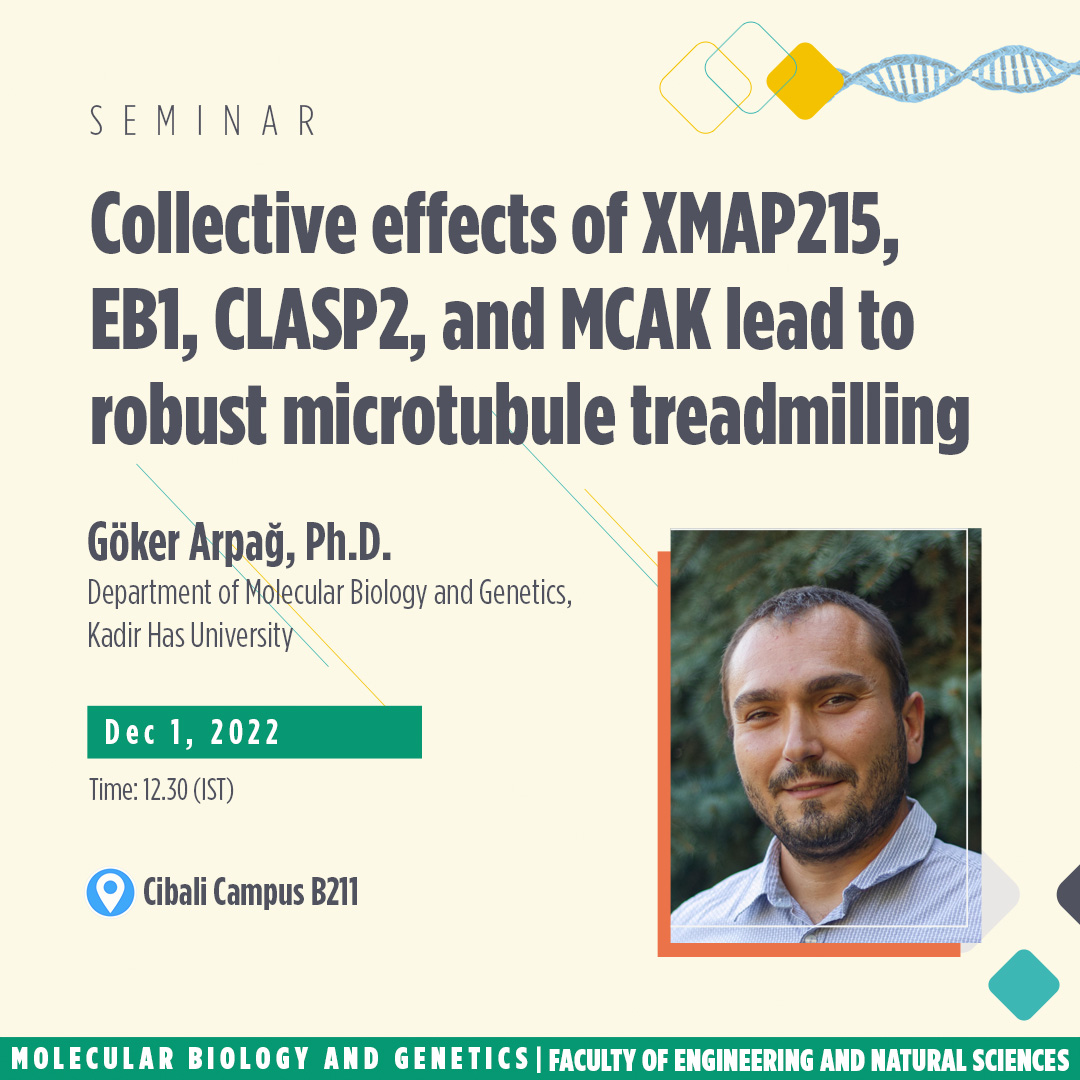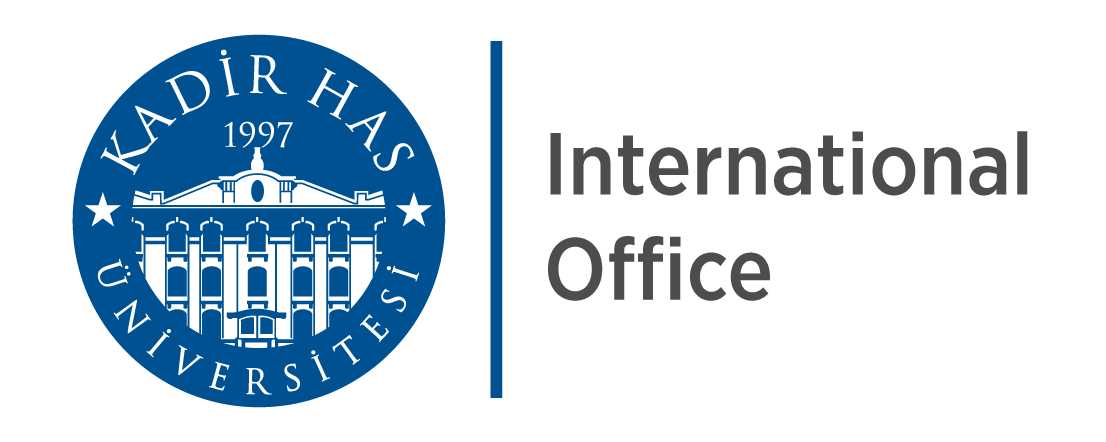
Molecular Biology and Genetics Seminars: Dr. Göker Arpağ
Dr. Göker Arpağ from Kadir Has University will be the next guest of the seminar series organized by KHAS Molecular Biology and Genetics Department with his speech “Collective effects of XMAP215, EB1, CLASP2, and MCAK lead to robust microtubule treadmilling” on Thursday, December 1 at 12:30 in B-211.
Abstract: Microtubule network remodeling is essential for fundamental cellular processes including cell division, differentiation, and motility. Microtubules are active biological polymers whose ends stochastically and independently switch between phases of growth and shrinkage. Microtubule treadmilling, in which the microtubule plus end grows while the minus end shrinks, is observed in cells; however, the underlying mechanisms are not known. Here, we use a combination of computational and in vitro reconstitution approaches to determine the conditions leading to robust microtubule treadmilling. We find that microtubules polymerized from tubulin alone can treadmill, albeit with opposite directionality and order-of-magnitude slower rates than observed in cells. We then employ computational simulations to predict that the combinatory effects of four microtubule-associated proteins (MAPs), namely EB1, XMAP215, CLASP2, and MCAK, can promote fast and sustained plus-end-leading treadmilling. Finally, we experimentally confirm the predictions of our computational model using a multi-MAP, in vitro microtubule dynamics assay to reconstitute robust plus-end-leading treadmilling, consistent with observations in cells. Our results demonstrate how microtubule dynamics can be modulated to achieve a dynamic balance between assembly and disassembly at opposite polymer ends, resulting in treadmilling over long periods of time. Overall, we show how the collective effects of multiple components give rise to complex microtubule behavior that may be used for global network remodeling in cells.
About the Speaker: Göker Arpağ is a visiting academician in the Department of Molecular Biology and Genetics at Kadir Has University. Göker obtained his B.S. degree from İstanbul Teknik Üniversitesi Department of Physics in 2011 and his Ph.D. degree in Physics at Worcester Polytechnic Institute in 2016. Although trained as a Physicist, Göker’s research has been intersecting with biology. At İTÜ, he worked with Prof. Ayşe Erzan to develop statistical and computational methods to study miRNA-mRNA pairing. His strong interest in biophysical research on cytoskeleton and its associated proteins started in graduate school in the group of Assoc. Prof. Erkan Tüzel. He developed computational models studying kinesin motility and cargo transport, and force generation by myosins. Göker joined Assoc. Prof. Marija Zanic’s laboratory for his postdoctoral training to obtain hands-on experience on biochemical in vitro reconstitution using purified protein components. He used multidisciplinary approaches to study microtubule dynamics and its regulation. Göker joined Kadir Has University in September 2022 and is establishing his independent lab. His research interests focus on elucidating fundamental biophysical principles underlying dynamic evolution of microtubule cytoskeleton and microtubule-based transport driven by molecular motors. Göker will talk about how the collective effects of multiple regulatory proteins give rise to differential regulation of the dynamics at the two microtubule ends, resulting in microtubule treadmilling, a poorly understood cellular behavior.
